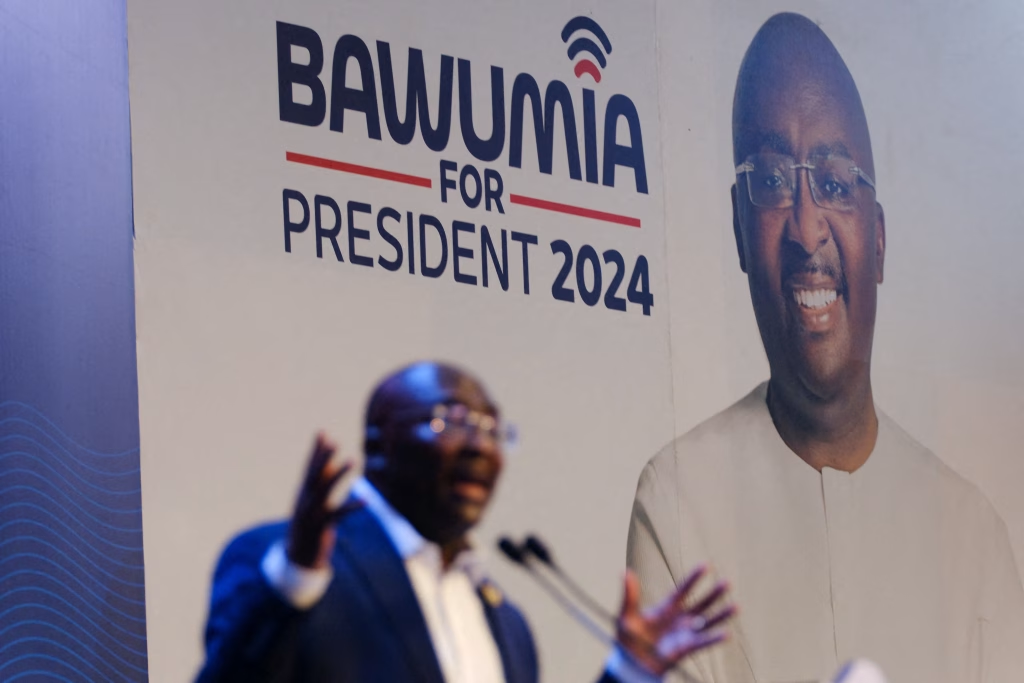Ghanaian Vice President Mahamudu Bawumia is vying for an unprecedented political feat—leading the New Patriotic Party (NPP) to a third consecutive term in office in Saturday’s presidential election. If successful, it would mark the first time any party has governed for more than two terms since Ghana’s transition to multi-party democracy in 1992.
Standing in Bawumia’s way is opposition leader and former president John Mahama, who seeks redemption after losing to the NPP in 2016 and 2020. The election pits Bawumia’s promises of economic stabilisation against Mahama’s push to capitalise on public dissatisfaction over rising living costs and a weakened cedi.
Bawumia’s campaign is built around his economic expertise and achievements, including digitalisation initiatives like mobile money programmes and land record reforms. However, his tenure as vice president under Nana Akufo-Addo has drawn criticism for the government’s economic management, culminating in a $3-billion IMF bailout following a 2022 debt default.

Bawumia has pledged economic stabilisation through measures such as a flat tax and competitive port charges. However, he must address the daily struggles of Ghanaians grappling with inflation and unemployment.
Critics argue that Bawumia’s association with Akufo-Addo’s administration could hinder his campaign.
Bawumia’s candidacy has disrupted traditional voting patterns in Ghana’s northern regions, where Mahama’s National Democratic Congress (NDC) has historically held sway.
With promises to form Ghana’s leanest yet most efficient government, Bawumia has committed to appointing no more than 50 ministers—a direct response to public concerns over government spending.
As the NPP rallies under the slogan “breaking the eight,” the outcome of Saturday’s election could reshape Ghana’s political landscape, offering a choice between continuity under Bawumia’s vision or change under Mahama’s leadership.


